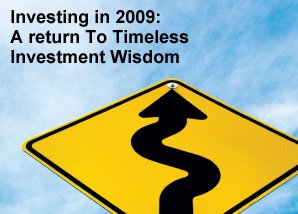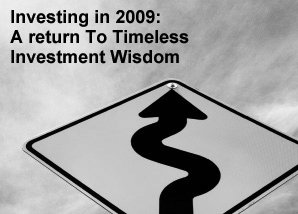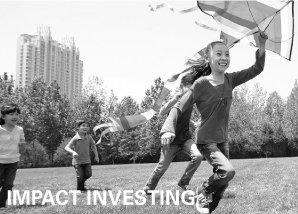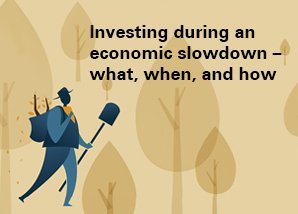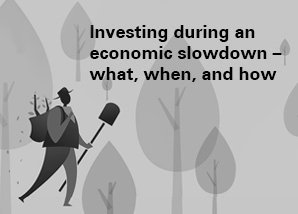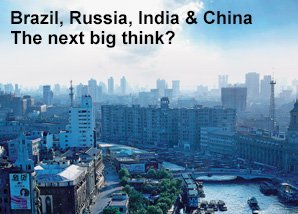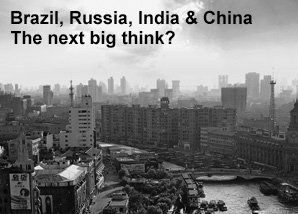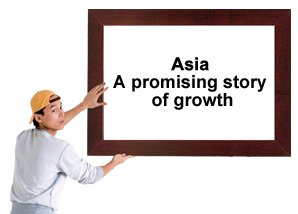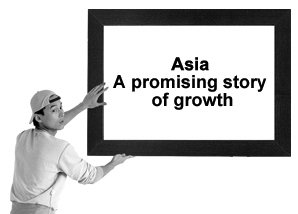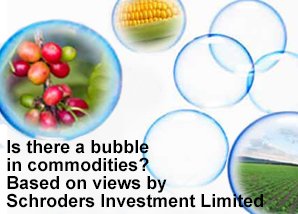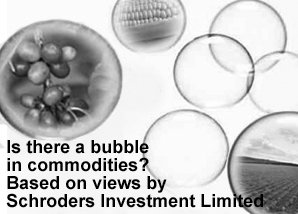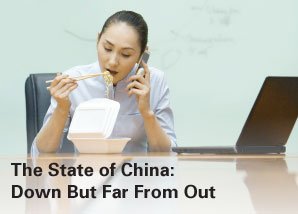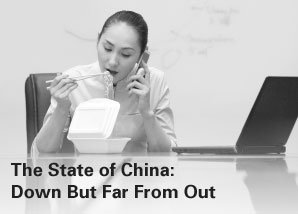Investing In 2017
Potential volatility in the year ahead could create risks, but it could also create opportunities. Being nimble and active will be key to your success…1
As we said goodbye to 2016 and welcomed 2017, HSBC Global Asset Management’s senior economic team took a look back at the year that was and looked ahead to 2017 to share their outlook for the coming year and insights on their investment approach.
The Big Picture
According to HSBC Global Asset Management’s Global Chief Strategist, Joe Little, today’s investment environment is characterised by “unusual uncertainties”.1 “This makes financial markets prone to episodic bouts of volatility, which can harm returns.”1 However, even though volatility creates risk, it also creates opportunity.1 He believes that to navigate the current investment landscape, it is essential to be nimble and active in one’s investment approach.1He says that exploiting tactical opportunities will be key in a low return world.1
Looking Back at 2016
Despite episodic bouts of volatility throughout 2016 – like the Brexit vote in June and the US election in November – the global economic environment remained relatively stable.1 Returns were quite reasonable across asset classes, especially when compared to 2015.1 “In dollar terms, developed market equities and bonds posted solid gains, and high yield credits and emerging market assets have outperformed”.1 Many asset classes traded within reasonable price ranges in 2016, even against a broadly stable growth backdrop.1 According to Joe Little, this is a reminder for investors that market- price action is not a pure reflection of economic fundamentals, and changing perceptions of risk are at least as big an influence on market dynamics.1
The Brexit and Trump Effect
Theoretically, these political events can be treated as “uncertainty shocks” which create volatility and increase risk.1 However, the Brexit case study implies that the short-term, cyclical damage might be a lot smaller than economic studies suggest.1 As for the US Presidential election, the cyclical economic shock following the election also seemed likely to be minimal.1
Having said that, there remains a high degree of uncertainty over what form Brexit will take, as well as how the policy agenda will play out in the US.1 This phase of political uncertainty is likely to persist and is something we should be prepared for.1
Looking Ahead in 2017 AND Beyond

“Global economic growth remains lacklustre relative to pre-crisis norms.1 Muted productivity gains and shrinking working-age populations are weighing on potential growth rates in advanced economies.”1 And emerging markets are also slowing, although from a high base.1
However, cyclical global activity has picked up since May 2016, and in 2017 global growth is expected to be above 3%.1 Set against lower potential growth rates, HSBC Global Asset Management’s Joe Little believes this actually looks quite good.1
For 2017, HSBC Global Asset Management is predicting resilient growth in the US, accelerating momentum in the Euro region and a bounce-back in activity in the UK and Japan.1 Emerging market growth has also stabilised with China benefitting from accommodative policy, while activity in both Brazil and Russia have bottomed out.1
Helped by the “end of fiscal austerity”,fiscal policy set by global governments will no longer be a drag on global GDP growth and even has the potential to be growth-supportive in 2017.1 “A new populist political agenda, the painfully slow post-crisis recovery and perceived limits of monetary policy will support the case for pro-cyclical fiscal easing.”1
Joe Little says we are now moving into a regime where global fiscal and monetary policies are more coordinated.1 This means the burden of demand management will be shared more evenly between policymakers and it increases the prospect of reflation.1 As fiscal policy becomes easier, central banks will continue to employ their arsenal of policy tools to ensure global liquidity conditions remain accomodative.1
Meanwhile, Michael Hasenstab, Chief Investment Officer of Templeton Global Macro sees a number of compelling opportunities across specific emerging markets that provide optimism for the upcoming year despite an increase in developed market political risks.2
“We continue to anticipate rising inflation in the US as wage pressures grow, while the Euro-area and Japan diverge markedly from the US with ongoing monetary accommodation,” says Hasenstab.2
In a Nutshell: Global Fixed Income Outlook
Xavier Baraton
Global CIO Fixed Income, HSBC Global Asset Management
“Looking to 2017, we, HSBC Global Asset Management, maintain our underweight on government bonds. Whilst term premiums have improved, they remain depressed from a historical point of view.
Conversely, we remain overweight on emerging market debt and credit due to the recent improvements in risk premiums and the stabilisation of fundamentals. Regional dispersion (“region” referring to certain regions of the world, for example, Southeast Asia, Europe or South America) will continue to manifest within these two segments – certain countries will do better than others – and we believe it is important to remain selective and tactical, to avoid most leveraged situations, and to favour global strategies.
In terms of risks, we will closely track inflation expectations on the one hand, and monetary policies on the other. The world remains highly leveraged, and therefore sensitive to interest-rate levels. Whilst we continue to expect a long-term net allocation into fixed income assets, coupled with ongoing vigilance from central banks, a significant overshooting of long-term rates could trigger a wave of volatility.”1
The Outlook For
RATES & CURRENCIES
Major global central banks believe that lower trend GDP growth and cautious investor preferences have dragged down equilibrium interest rates.1 This rate environment implies that prospective returns across asset classes will be lower relative to history.1 According to Joe Little, there is no escaping that we are living in a low return world and investors must be realistic about their return expectations.1
On the currency front, HSBC Global Asset Management believes the combination of gradually tighter monetary policy and easier global fiscal policy will support further US Dollar strength, which rallied over 7% against a basket of other major currencies from August to December 2016.1 Elsewhere, HSBC Global Asset Management is cautious on the Euro and Yen, believes the Sterling is trading slightly cheap relative to fair value, and is of the opinion that most emerging market currencies continue to be poised for medium-term appreciation and offer an attractive carry relative to the US Dollar.1
Key Risks In 2017
The current economic and market environment is characterised by “unusual uncertainties”.1 These are driven by1:
• Economic uncertainty e.g. will there be a more abrupt deleveraging in China?
• Political uncertainty e.g. the uncertainty shocks from the surprise election of Trump and the UK’s Brexit vote
• Policy uncertainty e.g. policy options at the effective lower bound
“Such an environment creates a lot of noise and episodic volatility in financial markets, but it also creates an opportunity for investors who have conviction and are willing to be contrarian and active”.1
While President Donald Trump’s populist agenda may be perceived as growth-friendly and market expectations appear to have shifted towards a “strong demand recovery scenario”, there is risk that output gaps become significantly positive (i.e. demand outstrips supply) and the US Federal Reserve may be forced to normalise policy more aggressively than expected.1 Faster rate increases would be particularly negative for duration assets and would likely cause a de-rating for credits and equities.1 “A stronger US Dollar could also undermine selective emerging market assets, particularly those with large Dollar-denominated debts.”1
Another risk would be the negative growth shock triggered by a sudden slowdown in emerging market growth, in particular China.1 “A China “hard-landing” could lead to a debt-deflation spiral that would drag the global economy into a recession.”1
The fragility of the European banking system also poses downside risk.1 Negative rates, flat yield curves and regulatory pressure have undermined bank profitability.1 Many European banks now find themselves with squeezed net interest margins and poor capital adequacy ratios.1 In HSBC Global Asset Management’s view, the risk is if bank solvency problems will affect the wider Eurozone economic system.1
“Finally, major political events also have the potential to shock markets in 2017.”1 Investors will need to watch the outcomes of the French and German elections closely, and wait for further clarity on how Brexit and the Trump win will shape the UK and US economies.1 As can be seen in 2016, political outcomes can inject further volatility into financial markets.1
In a Nutshell: Global Equities Outlook
Bill Maldonado
Global CIO Equities & CIO Asia-Pacific, HSBC Global Asset Management
“We, HSBC Global Asset Management, are of the view that equities continue to look undervalued relative to bonds – particularly government bonds. We believe the equity risk premium is still attractive and the asset class presents opportunities in both developed and emerging market equities.
Whilst the balance has shifted towards the reflationary end of the “fragile equilibrium” and away from the secular stagnation scenario, we expect equities to continue to deliver rather modest returns.”1
Investment Strategies For 2017
From an investment strategy viewpoint, HSBC Global Asset Management believes the case is strong to maintain a structural underweight in global government bonds.1 Although yields moved higher in Q4 of 2016, bond prospective returns still look poor.1 Instead, HSBC Global Asset Management continues to prefer global equities and selective emerging market equities and debt.1
Better cyclical activity data should support the corporate sector and equities should also do well in a reflationary environment.1 HSBC Global Asset Management also believes selective emerging market assets look attractively priced.1 The focus is on opportunities where the return is high, currency valuations look attractive and where a relatively closed economy can provide some shelter against a more aggressive “reverse globalisation” trend.1 This positive view for emerging market equities is shared by Franklin Templeton Investments.2 Following recent improvements, the fund house expects macroeconomic advances in emerging markets to continue in 2017.2 According to Franklin Templeton Investments, this could bode well for top-line growth opportunities and the earnings outlook for emerging market equities.2
“Overall, Franklin Templeton Investments expects to see GDP growth for emerging markets in 2017 at a solid and accelerating level, markedly above the rate expected for developed markets.”2 Emerging market countries are still far behind their developed market counterparts when it comes to overall GDP-per-capita, so the fund house continues to expect strong growth prospects over the long term.2
In a Nutshell: Liquidity Outlook
Jonathan Curry
Global CIO Liquid, HSBC Global Asset Management
“Looking forward into 2017, following the results of the Brexit referendum and the US presidential elections in 2016, the key question for money markets will be to understand whether the “rise of populism” will lead to the end of austerity through pro-cyclical fiscal easing. If it does, it will be crucial to measure the implications on both official rates and market rates on money markets, particularly the US Dollar, Sterling and Euro markets.
In the UK, the change in leadership of the Conservative party has already led HSBC Global Asset Management to observe a less austere message. A similar shift is now expected in the US following the recent election result. In the Eurozone, with a constitutional referendum in Italy in December 2016, and French and German elections in 2017, the question is to see if EU governments will heed the message from the UK and US votes. Will they choose more populist policies and ease fiscal policy in 2017?”1
In emerging market debt markets, HSBC Global Asset Management thinks Brazil and India bonds look interesting, while in the equity space, they believe North Asian equities continue to offer the best risk/reward.1 On the currency front, HSBC Global Asset Management expects a combination of loose fiscal policy and monetary policy normalisation in the US to be supportive of the US Dollar.1
Given the elevated levels of uncertainty present in the current environment, HSBC Global Asset Management thinks episodic bouts of volatility are likely.1 Current pricing is not very generous so the ability for asset classes to absorb bad news is limited.1
Therefore, HSBC Global Asset Management believes that it is essential to take a dynamic approach to investing.1 Being active, nimble and opportunistic will be crucial for investment success.1
To ensure that you continue to make smart investment decisions in 2017, and stay active and nimble to take advantage of opportunities in the current investment landscape, we encourage you to have an open dialogue with your Relationship Manager throughout the year and plan periodical reviews of your investments so that you can maximise the value of your investments with HSBC.
“Being active, nimble and opportunistic will be crucial for investment success.”

• Sources: 1 HSBC Global Asset Management, To 2017 and Beyond… Investment Outlook: Year-End Review and Outlook, December 2016. 2 Franklin Templeton Investments, 2017 Global Investment Outlook: Actively Navigating a Dynamic World, December 2016.







